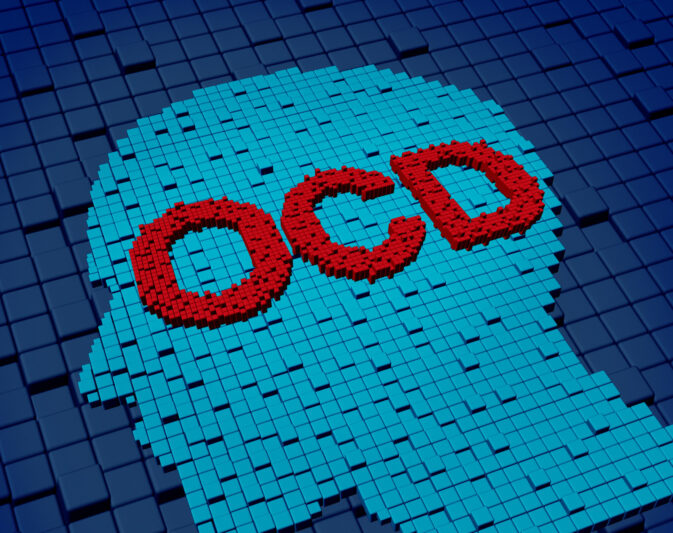OCD and Social Security Disability in Chicago, IL
In casual conversation and in popular media these days, the term OCD has become a punch line, and even often a reference to a personality quirk. But to those who actually suffer from Obsessive Compulsive Disorder, it is anything but a laughing matter. The misuse of the term OCD has lead to widespread misunderstandings about the disorder.
Obsessive Compulsive Disorder (OCD) is a mental health disorder that can be severely debilitating. It can upend the lives of those who often are caught in a cycle of obsessions and compulsions, and it can greatly impact the life of the individual and the lives of those around them. On their website, the International OCD Foundation says that “obsessions are unwanted, intrusive thoughts, images or urges that trigger intensely distressing feelings. Compulsions are behaviors an individual engages in to attempt to get rid of the obsessions and/or decrease his or her distress.” OCD affects people of all ages and walks of life. It is estimated that nearly one in 100 people suffer from OCD in the United States, which is about 3.3 million cases of OCD. Approximately 51 percent of those cases are severe.
If you suffer from OCD that is so disruptive that you are unable to sustain a job, you may qualify for Social Security Disability Insurance (SSDI) or Supplemental Security Income (SSI) benefits. The Social Security Administration maintains a list of conditions with detailed requirements for when the SSA should judge a mental or physical condition to be disabling. If an individual matches the requirements in the listings (also called the “Blue Book”) they can qualify for disability payments. OCD is evaluated by the Social Security Administration (SSA) as an anxiety-related disorder under section 12.06 in the Blue Book.
In 2017, Social Security revised its criteria for awarding benefits for OCD (and for many other impairments, as well). The criteria for OCD changed extensively. To qualify for benefits due to OCD, the listing says you must first have a diagnosis of “Obsessive Compulsive Disorder, characterized by one or both:
- Involuntary, time-consuming preoccupation with intrusive, unwanted thoughts;
- Or repetitive behaviors aimed at reducing anxiety.”
Furthermore an individual must have an extreme limitation in one or a marked limitation in two of following areas of mental functioning:
- Understand, remember or apply information;
- Interact with others;
- Concentrate, persist or maintain pace; or
- Adapt or manage oneself.
By “marked,” the SSA means severely limiting.
In order to prove you are disabled under Social Security’s rules, you need to show that your OCD prevents you from performing even simple, routine repetitive work. To qualify for benefits, your symptoms of OCD must have lasted or are expected to last for at least 12 months.
Most individuals with anxiety problems don’t match up exactly to the Social Security’s listings. If not, the Social Security Administration enlists a complex set of rules to determine disability. Disability benefits for any anxiety disorder, like OCD, are awarded only to those who can demonstrate that they are unable to sustain competitive work activity as a result of their condition(s).
As with any impairment, it is not enough just to say to the SSA that you are disabled by OCD. To be awarded benefits, you must present solid medical evidence. At Nash Disability Law, we recommend you have the following:
- Medical records showing the history of your condition, including the treatments (medication and therapies) your doctor has prescribed, and a report on how well each treatment has worked (or not worked) and if there were any side effects.
- The results of a diagnostic questionnaire (such as the Yale-Brown Obsessive Compulsive Scale), if your doctor has administered one.
- A comprehensive report from your psychiatrist which details how your OCD affects your activities of daily living and your capability of holding a job.
Statistics show that a person dealing with a mental illness is no less likely to be awarded benefits than a person with a physical disorder. That’s the good news. The less good news is that it is difficult for everyone to qualify for benefits. More than two out of three initial applications for Social Security disability benefits are denied, and fewer than four in ten are approved after all levels of appeal.
Social Security’s typical response to people with severe mental problems who apply for disability is that they can work at simple unskilled jobs. We know, from experience, that mental health disability cases are not easy to win, but they can be won, if the case is properly prepared. If your OCD is preventing you from maintaining employment, please don’t hesitate to contact us at 312-443-0900 for a free evaluation of your situation.


